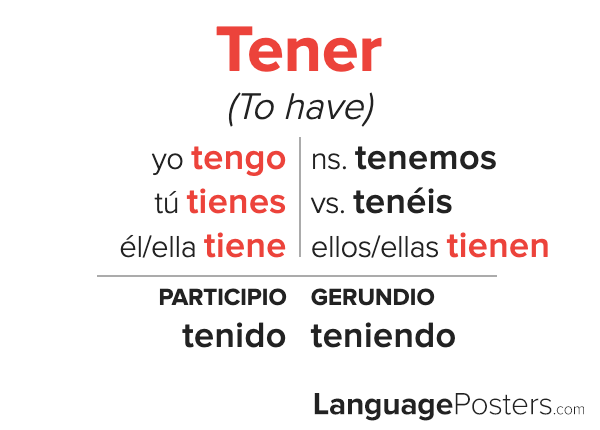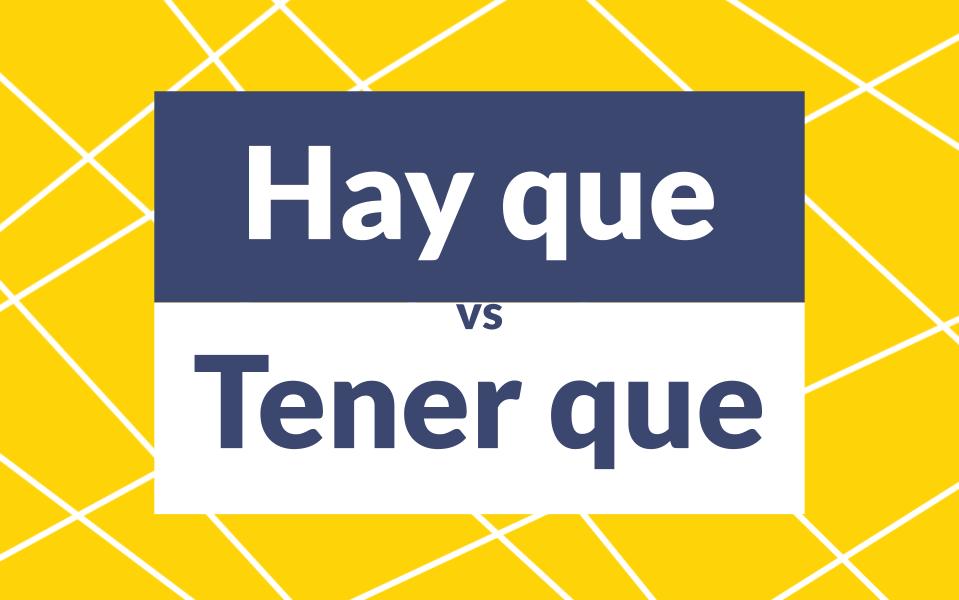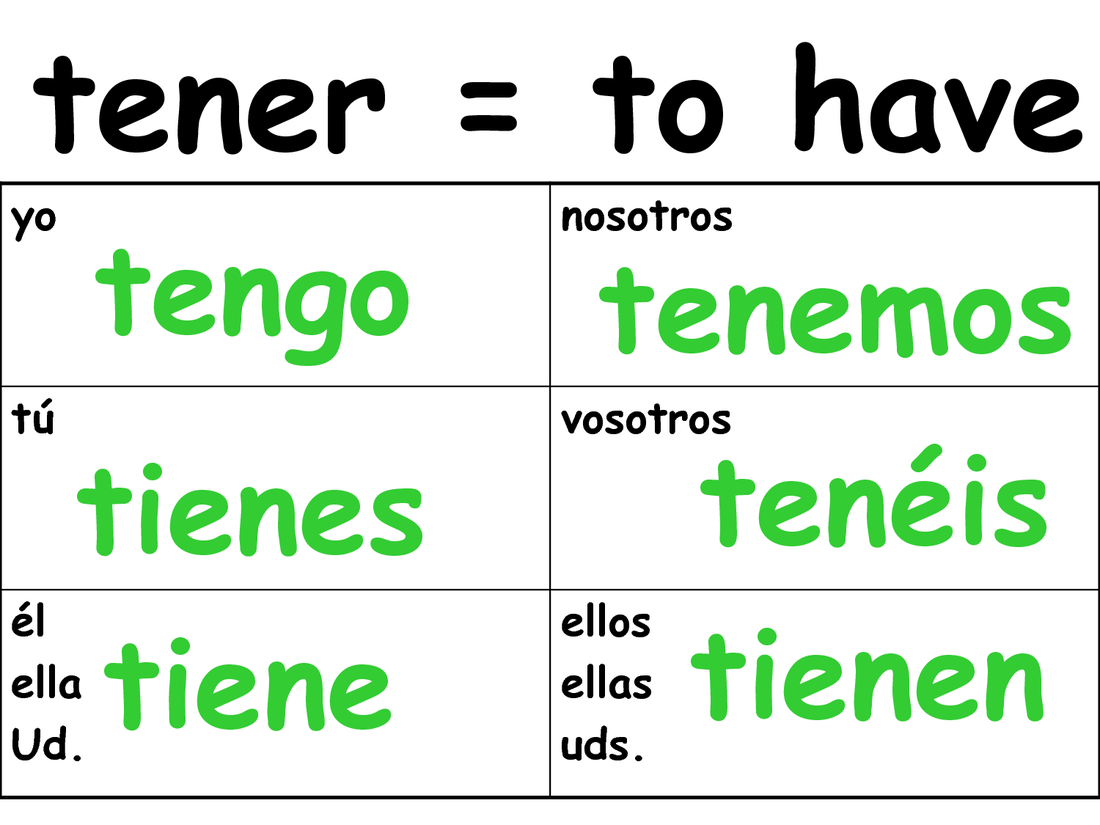Tener Que: A Deep Dive into the Spanish Verb of Obligation
Associated Articles: Tener Que: A Deep Dive into the Spanish Verb of Obligation
Introduction
With nice pleasure, we are going to discover the intriguing matter associated to Tener Que: A Deep Dive into the Spanish Verb of Obligation. Let’s weave attention-grabbing info and provide recent views to the readers.
Desk of Content material
Tener Que: A Deep Dive into the Spanish Verb of Obligation

The Spanish verb tener que interprets on to "to need to" in English, expressing obligation or necessity. Whereas seemingly easy, tener que presents a wealthy tapestry of nuances and grammatical complexities that transcend a easy direct translation. This text will discover its numerous makes use of, conjugations, alternate options, and refined variations in comparison with different expressions of obligation in Spanish.
Understanding the Core That means: Obligation and Necessity
At its coronary heart, tener que signifies an exterior obligation or necessity. This obligation can stem from numerous sources: guidelines, legal guidelines, requests, plans, and even logical penalties. It is vital to differentiate this from deber, which frequently implies an ethical obligation or obligation. Whereas there’s overlap, the sensation of tener que is commonly extra forceful, implying a stronger stress or perhaps a sense of being compelled to behave.
For instance:
- Tengo que ir al médico. (I’ve to go to the physician.) – This means a necessity, maybe on account of sickness.
- Tenemos que terminar el proyecto para mañana. (We’ve to complete the mission by tomorrow.) – This means a deadline imposed externally.
- Tiene que pagar sus impuestos. (He has to pay his taxes.) – It is a authorized obligation.
Conjugations of Tener Que:
The development of tener que includes conjugating the verb tener (to have) after which including the infinitive of the verb expressing the motion that’s compulsory. This implies the conjugation adjustments relying on the topic pronoun.
This is a whole conjugation within the current tense:
| Pronoun | Conjugation of Tener | Instance with "ir" (to go) | Translation |
|---|---|---|---|
| Yo (I) | tengo | tengo que ir | I’ve to go |
| Tú (You – casual) | tienes | tienes que ir | It’s important to go |
| Él/Ella/Usted (He/She/You – formal) | tiene | tiene que ir | He/She/It’s important to go |
| Nosotros/Nosotras (We) | tenemos | tenemos que ir | We’ve to go |
| Vosotros/Vosotras (You – casual plural, Spain) | tenéis | tenéis que ir | You (plural) need to go |
| Ellos/Ellas/Ustedes (They/You – formal plural) | tienen | tienen que ir | They/You (plural) need to go |
Conjugations in different tenses comply with the identical sample: the verb tener is conjugated within the desired tense, and the infinitive of the primary verb follows. For instance:
- Current Excellent: He ha tenido que trabajar mucho. (He has needed to work lots.)
- Future: Ella tendrá que estudiar más. (She should examine extra.)
- Conditional: Nosotros tendríamos que llamarles. (We must name them.)
- Imperfect: Yo tenía que hacerlo. (I needed to do it.)
Subjunctive with Tener Que:
The subjunctive temper is used with tener que when the duty depends on a previous clause expressing doubt, uncertainty, want, or an identical sentiment.
- Quiero que él tenga que estudiar. (I need him to have to check.) – The duty depends on the speaker’s want.
- Es importante que tú tengas que asistir. (It is vital that you need to attend.) – The duty depends on the significance of the attendance.
Alternate options to Tener Que:
Whereas tener que is a typical and versatile expression of obligation, different verbs and phrases can convey comparable meanings, typically with refined variations in connotation:
- Deber: Implies an ethical obligation or obligation. Debo estudiar (I ought to examine) suggests an ethical crucial reasonably than a strict exterior requirement.
- Hay que: Expresses a normal obligation or necessity. Hay que limpiar la casa (The home must be cleaned) would not specify who’s accountable.
- Necesitar: Focuses on the necessity reasonably than the duty. Necesito dormir (I must sleep) emphasizes the non-public requirement.
- Estar obligado a: A extra formal manner of expressing obligation, typically utilized in authorized or official contexts.
- Ser necesario: Much like hay que, emphasizing the need of an motion.
Nuances and Idiomatic Makes use of:
The usage of tener que could be nuanced relying on context and intonation. As an example:
- Emphasis: Including phrases like sí or absolutamente can strengthen the sense of obligation. Sí que tengo que ir (I completely need to go).
- Reluctance: The tone of voice can convey reluctance despite the fact that the grammatical construction stays the identical. Tengo que trabajar (I’ve to work) can sound resigned and even resentful relying on supply.
- Casual Contractions: In casual speech, contractions could be used, reminiscent of tengo que changing into tengo’que.
Evaluating Tener Que with Different Languages:
The closest equal in English is "to need to," however different languages may make the most of totally different constructions. French makes use of devoir, which is nearer to deber in its ethical implication. German makes use of müssen, which is a extra direct equal of tener que in its sense of exterior obligation. Understanding these cross-linguistic variations is essential for correct translation and efficient communication.
Conclusion:
Tener que is a elementary element of Spanish grammar, expressing obligation and necessity in a flexible and nuanced manner. Whereas its primary which means is easy, mastering its numerous conjugations, its interplay with the subjunctive temper, and its refined variations in comparison with different expressions of obligation is important for attaining fluency and speaking successfully in Spanish. This text has offered a complete overview of tener que, equipping learners with the data to navigate its complexities and use it with confidence in a wide range of contexts. Additional observe and immersion within the language will solidify understanding and refine the power to make use of this important verb appropriately and naturally.








Closure
Thus, we hope this text has offered invaluable insights into Tener Que: A Deep Dive into the Spanish Verb of Obligation. We hope you discover this text informative and useful. See you in our subsequent article!